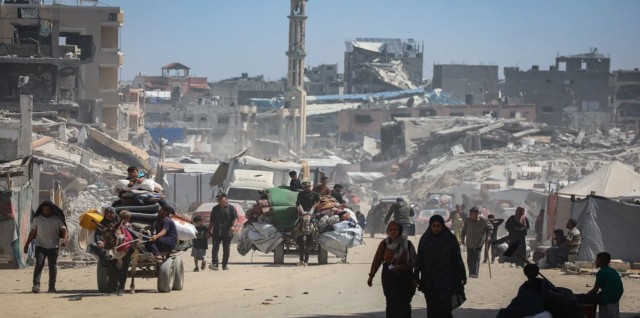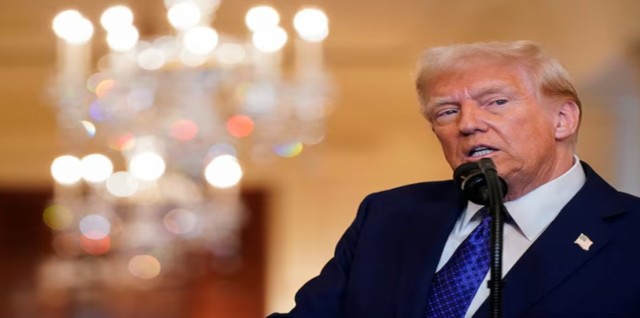
FILE - In this photo released by Russian Defense Ministry Press Service on Friday, Feb. 2, 2024, Russian troops load an Iskander missile onto a mobile launcher during drills at an undisclosed location in Russia. The world's nine nuclear-armed states continue to modernize their nuclear weapons as the countries deepened their reliance on such deterrence in 2023, a Swedish think tank said Monday June 17, 2024. (Russian Defense Ministry Press Service via AP, File)
The Stockholm International Peace Research Institute (SIPRI) reported on Monday that the world's nine nuclear-armed nations have continued to modernize their nuclear arsenals in 2023, intensifying their reliance on these weapons as a deterrent. SIPRI's Director of the Weapons of Mass Destruction program, Wilfred Wan, highlighted that nuclear weapons are playing a more prominent role in global geopolitics than at any time since the Cold War.
Recently, Russia and Belarus conducted military exercises focused on tactical nuclear weapons, part of Russia's strategy to dissuade Western support for Ukraine. Meanwhile, the International Campaign to Abolish Nuclear Weapons (ICAN) disclosed that these states collectively spent $91.4 billion on nuclear weapons in 2023, equivalent to $2,898 per second. This marked a $10.7 billion increase from the previous year, with the United States responsible for 80% of the rise, totaling $51.5 billion.
ICAN's Policy and Research Coordinator, Alicia Sanders-Zakre, criticized the upward spending trend, emphasizing that it does not enhance global security but instead threatens communities worldwide. China followed the United States as the second largest spender with $11.8 billion, while Russia allocated $8.3 billion to its nuclear arsenal.
SIPRI estimated that approximately 2,100 deployed warheads were on high alert, primarily by Russia and the USA. Notably, China has also begun maintaining some warheads on high operational alert. Dan Smith, SIPRI's director, expressed concern over the year-over-year increase in operational nuclear warheads, predicting further escalation in the years ahead.
The institute's Yearbook for 2024 underscored a decline in transparency regarding nuclear forces, particularly following Russia's invasion of Ukraine in 2022. Both Russia and the United States have maintained stable military stockpiles in 2023, although Russia reportedly increased its operational warheads by about 36 compared to the previous year.
SIPRI noted that India, Pakistan, and North Korea are enhancing their capability to deploy multiple warheads on ballistic missiles, joining the existing capability of the US, Russia, France, UK, and China. This development could potentially escalate the number of deployed warheads and increase the threat posed by nuclear-armed states.
The institute cautioned that its estimates are approximate and subject to revision based on new information and updates. It highlighted ongoing concerns about the proliferation and modernization of nuclear weapons, urging global efforts towards disarmament and transparency to mitigate nuclear risks worldwide.















